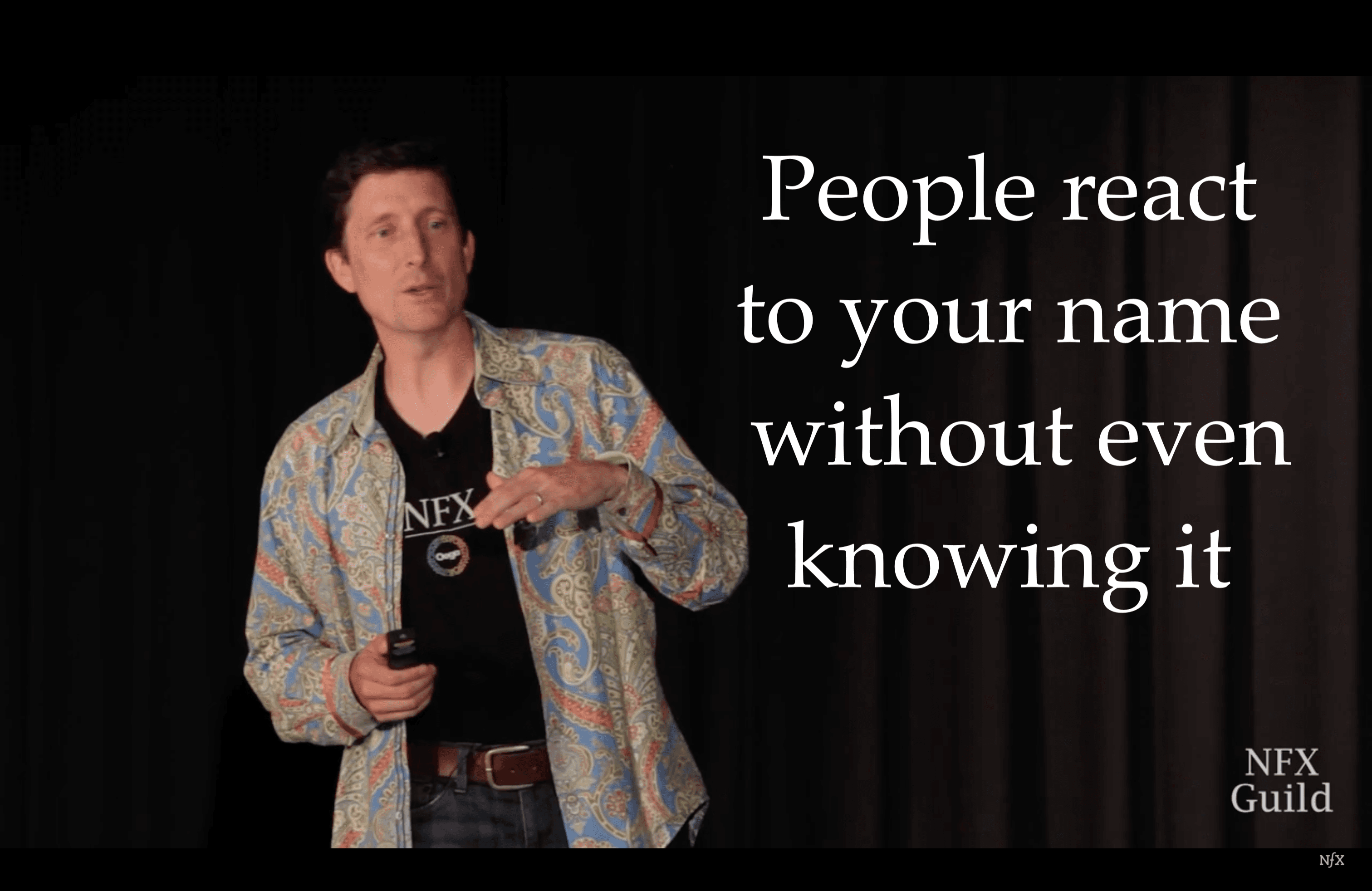

Many people I consider otherwise excellent founders and investors believe the name of your company doesn’t matter.
Unfortunately, they’re wrong. It’s a blind spot for them.
A great company name can lift you up.
I woke up to the power of company names when we screwed up my startup’s name in 1999. We called it Emode which in hindsight was hard to spell, impossible to remember, and a dated name within 24 months. With coaching, we changed it to Tickle. Traffic shot up 30%, journalists started writing about us, our ad spend became 20% more effective, and no one forgot our name.
What’s more, before the name change, we had an acquisition offer for $45M. Just four months after the name change, we received an offer for $110M. A name change started a series of changes in how the customers perceived and reacted to us, how investors and acquirers thought of us, and ultimately, how we thought about ourselves. The power of language increased our valuation by 2.5X.
Having a great name doesn’t ensure success. But it can have a profound impact. It’s like a rudder on a boat, quietly steering your company’s direction.
Consider these other examples:
- With a newfound enlightenment, I saw a similar thing play out in the battle of the early search engines. I was an Associate at Battery Ventures when the firm invested in InfoSeek, the first U.S. search engine. InfoSeek rarely won attention from press or consumers even though they had the superior product. Simply put, Yahoo was orders of magnitude more interesting to talk about. And the numbers showed it. InfoSeek eventually sold for $72M and Yahoo reached a peak of $120B. It was then that I started writing a playbook for naming companies — in many cases, what we call things is equal to or more important than how we build them.
- My Partner Pete Flint was the founder and CEO of Trulia. His largest competitor was Zillow. He has said that the Zillow name was better than Trulia’s, so his battle was always uphill. While Trulia merged with Zillow in a $3.5 billion transaction, Pete believes his odds of overtaking Zillow would have been even better had he chosen a stronger name.
- In May of 2007, I wrote a blog post titled “Twitter, a great investment for someone”. I said there were two reasons Twitter would be a big deal, and one of them was that “they nailed the name.” It was clear even back then that the Twitter name and the language convention of “tweeting” were a big asset, providing wind to the back of the company. How much did it matter? I estimate it mattered a lot.
When you’re not in the room, the name of your company is what gets passed between people. It speaks for you when you’re not there.
Why does a name matter so much?
It’s psychological.
People often aren’t aware of the impact your name is having on them. What emotions it evokes in them. Whether they think you’re strong or trustworthy or friendly or expensive. It sets expectations of your company in the blink of an eye. And first impressions are hard to change. Both positive and negative.
The wrong company name can tear you down.
You can destroy yourself with a bad name. In the case of Bodega last week, it appears the combination of their name, who the founders were, and the way they designed and positioned the product were all factors. It may or may not sink the company, but it sure has made it a lot harder for them.
Hunter Walk of Homebrew is an investor in Bodega. He’s a very thoughtful person. He reflected last week on why he failed to see this blowback against Bodega coming.
Our interpretation is that few people appreciate the true impact of a company name on its products, messaging, and positioning.
The Bodega controversy gives founders a window into a hidden truth — your company name matters a lot. My partners and I have seen firsthand — as entrepreneurs and now investors — that names are like rudders on a boat. Under the surface, they quietly steer the direction of your company’s positioning, messaging, and even products.
Language is the human OS. Language needs to be in your company tool kit from the start.
Silicon Valley has long had a love affair with engineering, for good reason. Yet at a time when our software is touching every facet of human life, it would be wise for the best startup founders to start paying attention to language as a starting point for everything they create — because reaction to language is a fundamental law of how humans work.
That’s true of business focused companies, not just consumer focused companies. Companies like Domo, SkyMind, Jiff, Datadog, and Slack have given themselves a big advantage in the enterprise space by having memorable, spellable and evocative names. Not so much for InsightSquared, WellTok, and HipChat, their competitors.
Changing your company name is a huge lever and should be used more often than it is.
50% of the early stage companies we work with at NFX choose to change their names after we invest. Why? First, because they’re shown the power of naming and how to rename. Second, as they change their businesses or target customers, it makes sense. Third, they want to give their teams a fresh start with a clarified mission, and a name change helps cement that shift with their teams.
You can choose a company name that elevates you, cripples you, or has no impact at all. So why not arm yourself with an advantage from the start?
How get your company name right:We have eight guidelines we share with our companies. Five you should know now are:
1) Memorable
2) Spell-able
3) Avoid being “descriptive” like HipChat, DailyBooth, Excite, or MySpace
4) Do be friendly, like WorkDay, SurveyMonkey, PayPal, and Google
5) Being a little controversial is OK. A great name might hit 10% of the people wrong, like Tickle, Banana Republic, Monster or Virgin.
As Founders ourselves, we respect your time. That’s why we built BriefLink, a new software tool that minimizes the upfront time of getting the VC meeting. Simply tell us about your company in 9 easy questions, and you’ll hear from us if it’s a fit.
